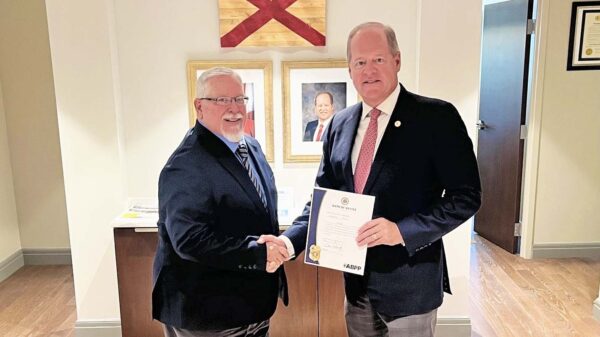The Alabama House of Representatives passed bills Tuesday that would require every judicial circuit in the state to have a community corrections program, give judges discretion when revoking probation for some and require the state to pay counties for housing inmates in some instances.
State Rep. Jim Hill, R-Odenville, introduced all three bills, the first of which to pass the House being House Bill 73, which would require each judicial circuit to establish diversion programs called community punishment and corrections programs, which provides oversight of people who plead guilty or who are convicted of crimes and can prevent them from being imprisoned.
All but about 13 counties statewide are covered by some type of community punishment and corrections program, Hill told members before the vote.
More commonly called community corrections programs, the programs often also operate specialized county courts, such as drug courts, veterans courts and mental health courts. They’re widely seen as effective in providing treatment and keeping people from automatically or unnecessarily being imprisoned.
Rep. Kerry Rich, R-Albertville, speaking before the vote said he supports such programs, which he said can save the state a great deal of money by reducing the number of people in prisons.
“It is an outstanding program, the way it’s operated in Marshall County, and that’s about 120 people that’s not in the state correctional system,” Rich said of his home county’s program.
Several Democrat members objected to the word “punishment” in Hill’s bill, which refers to such programs using the full title of “community punishment and corrections programs.”
“That’s been the name of it as long as I’ve known,” Hill told one of those lawmakers before the bill was approved in an 88-9 vote.
House members next voted 84-18 to approve Hill’s House Bill 23, which allows a judge discretion when revoking a person’s probation who had previously received a split sentence after a felony conviction.
In a split sentence, a person is required to serve a portion of the total sentence in prison with the full remainder of that total sentence served on probation. Hill’s bill gives judges the discretion to reduce the amount of time the person would ultimately serve in prison, Hill explained, with the exception of those convicted of sex crimes, who would have to serve the full remainder of their original sentence.
Members also approved House Bill 110, which Hill explained would require the state to pay counties $20 each day, in addition to any medical costs incurred, while a state inmate is being housed in county jails for relatively short periods of time for sanctions known as “dips” and “dunks,” whereby a person violates the terms of their probation and is sent back to prison.
“The county gets absolutely nothing for the period of time that that individual is housed,” Hill said, explaining that his bill would ease that financial burden on counties.
Rep. David Standridge, R-Hayden, commended Hill for his bill and described the situation it addresses as a serious, costly problem for counties.
Standridge and several other legislators said there should also be consideration to require the state to pay for other inmates held in county jails, who are waiting to be taken to state prisons. Often, those inmates can sit in county jails for some time, they explained.
“I just think it’s something that we need to address, along with what you brought up,” Standridge said.
“This is the first step, and I think you’re right. There will be others,” Hill said.
All three bills passed by the House on Tuesday now go to the Senate.















































